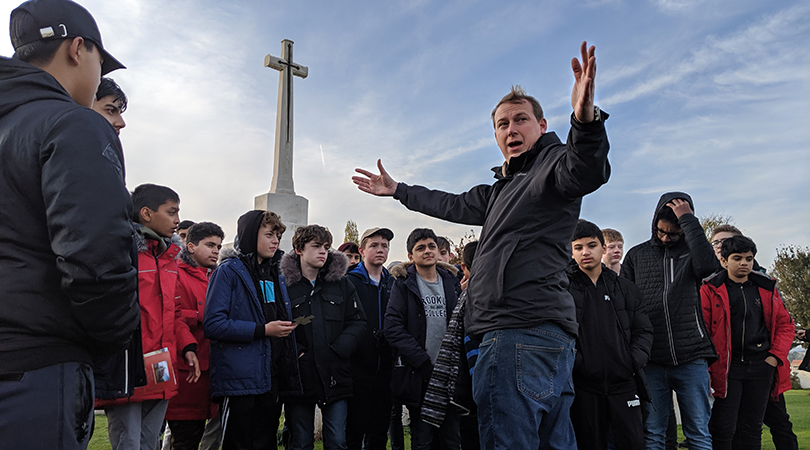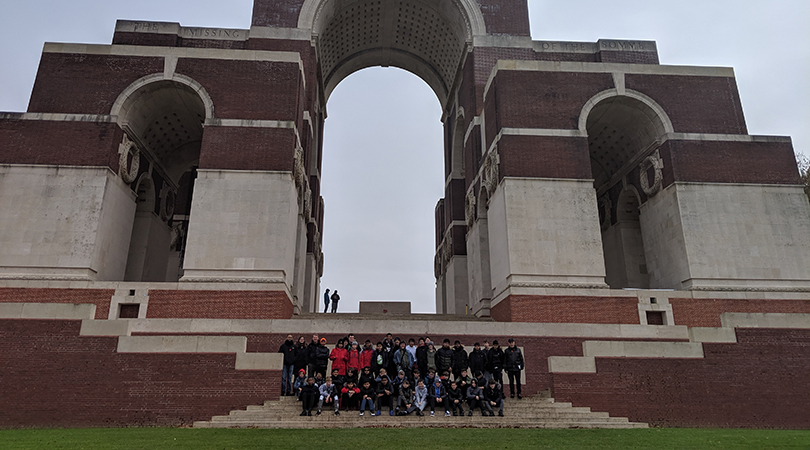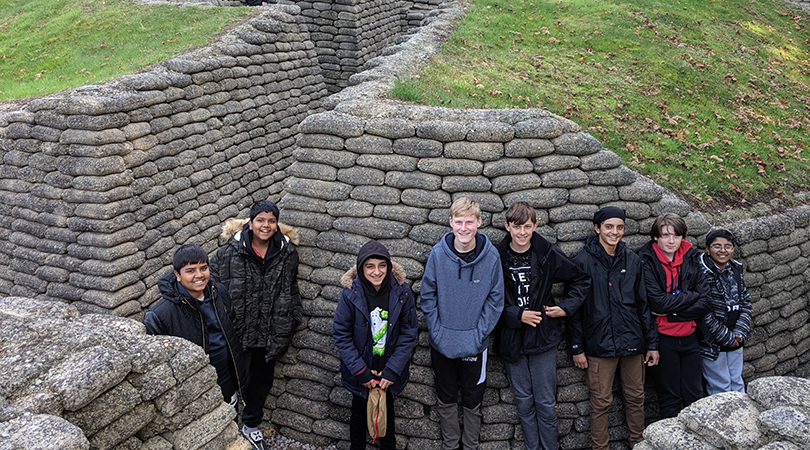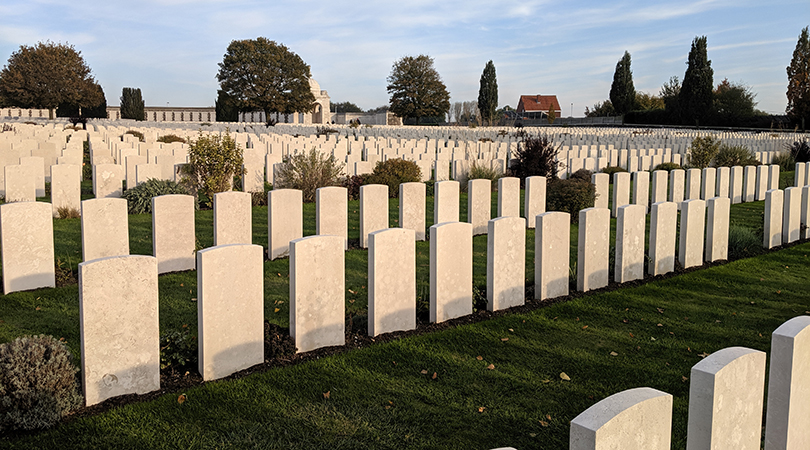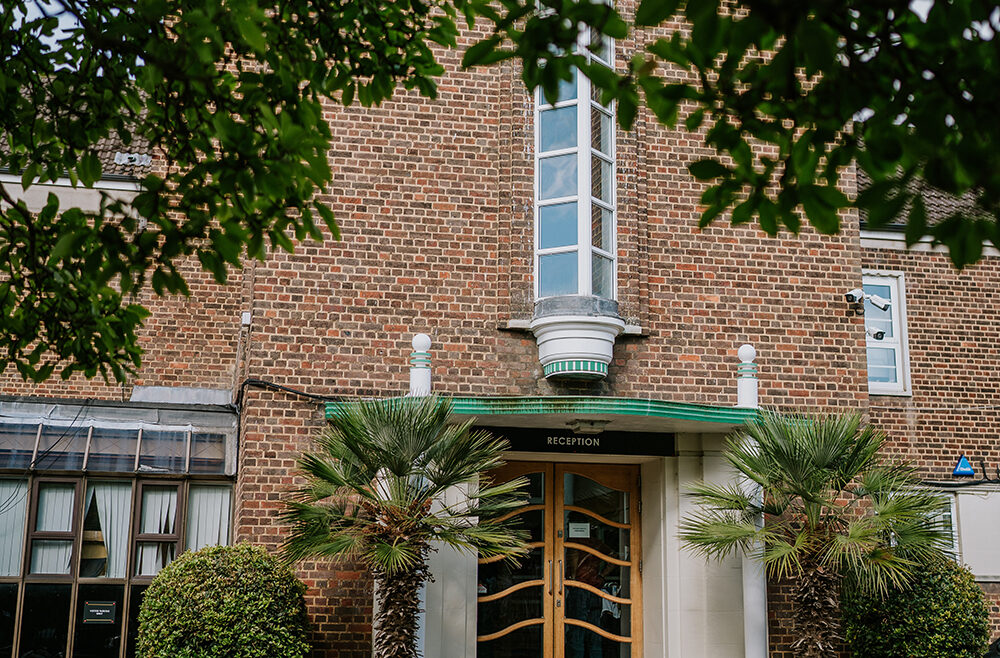
By Oliver Hone (9Br)
In October this year, I was lucky enough to participate in a three-day trip to Belgium along with 44 other Year 9 students. The aim of the trip was to both commemorate and learn about the lives of soldiers of World War I (WWI). It was a momentous trip because we visited a wide variety of different memorials and museums. It was a momentous trip because we learned about how WW1 soldiers lived. It was a momentous trip because it provided me with an enormous sense of perspective.
One of the most distinct and profoundly powerful memorials was Tyne Cot. It is a cemetery dedicated to British soldiers, the resting place to 11,900 men – some only 19 years old. It was one of my favourite memorials; it has stunning architecture as well as many tactical and military aspects. For instance, you can see miles into the distance which, 101 years ago, allowed the allied forces to be alerted to oncoming German troop attacks. It is a spectacular venue. I gained a real sense of living with history.
Another breathtaking memorial was the Menin Gate. This cenotaph commemorates over 54,000 British Commonwealth soldiers who are without named graves. While this is surprising, indeed shocking, what I found most astonishing was when I was told that the remembrance ceremony had been held almost every day since the end of WWI – that’s 36,360 continuous days of respectful commemoration. Amazing. Seeing first-hand how many people attended these memorial events has made me realise just how many people continue to be affected by WWI.
The Menin Gate is just one of the many memorials for missing soldiers. We also visited the Theipval Memorial which commemorates the 72,000 missing soldiers who died in the Battle of the Somme. We laid 25 memorial crosses for the Isleworth & Syon students who died during WWI. These were students just like me – students from South Street, Castle Road, North Street and St John’s Road. This is real history. They are a part of our past community.
Overall, the Ypres trip demonstrated to me that the brutal conflict of WWI affected everyone. No matter where they lived or whatever they did, young or old, everyone was affected. Most of all, the demonic scale of the human loss consequently impacted on a vast majority of families, especially in Europe. Students from our school died fighting for the soil we stand on today; for our tomorrow, they gave their today. The Ypres experience has left lasting memories that I’ll never forget.

